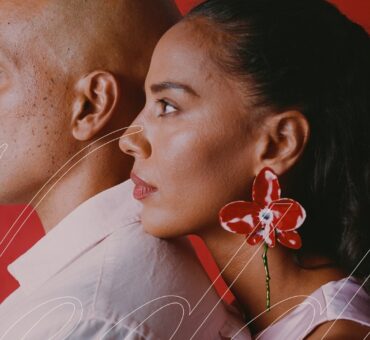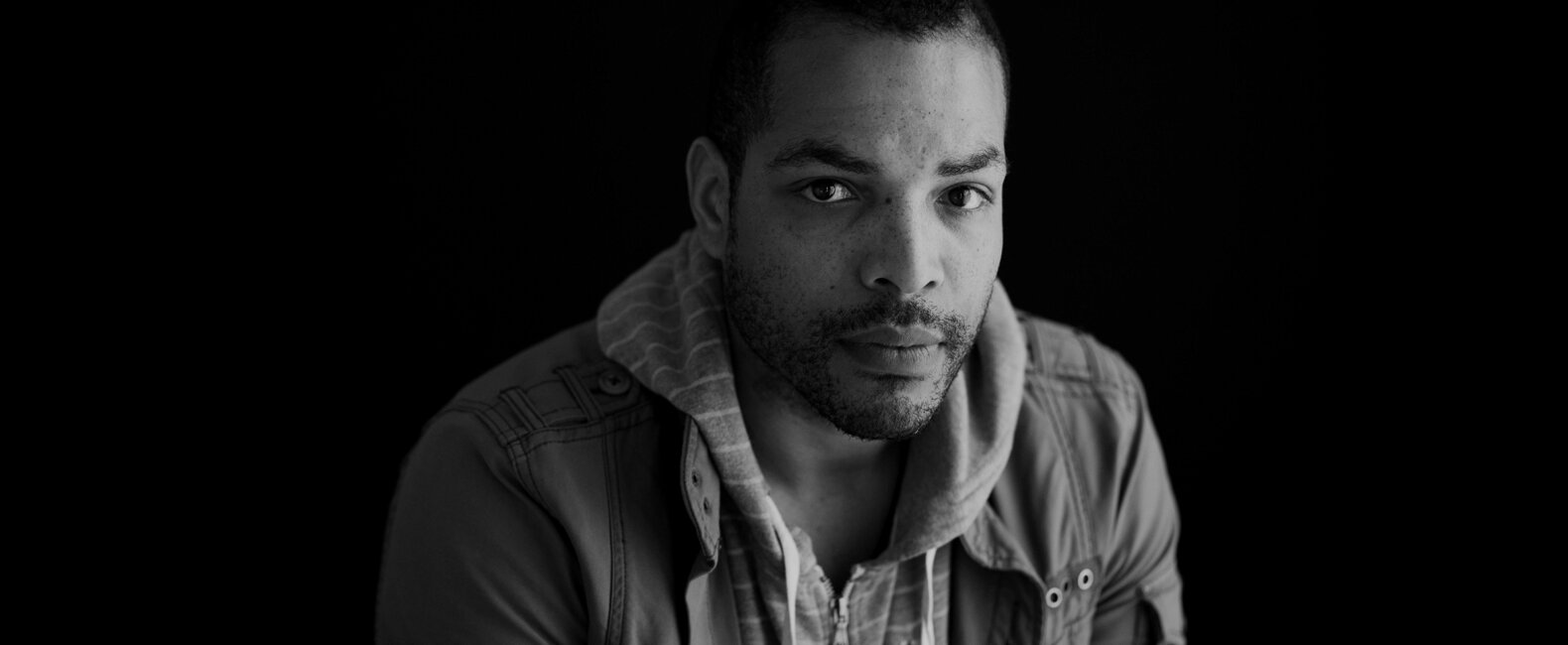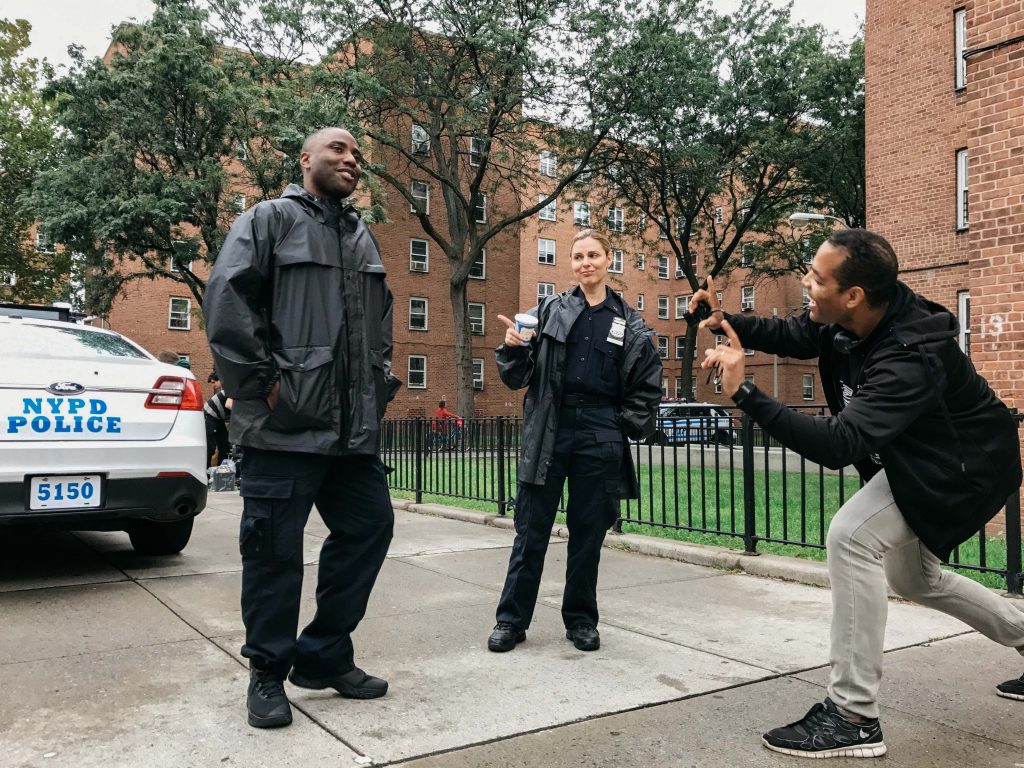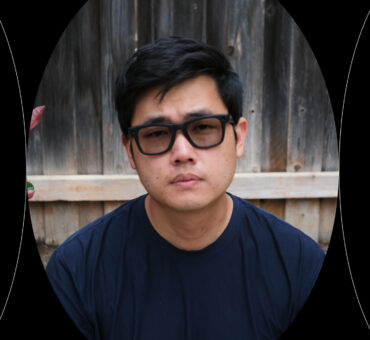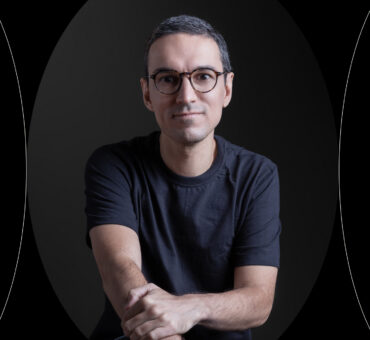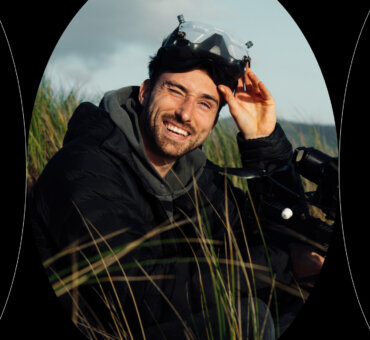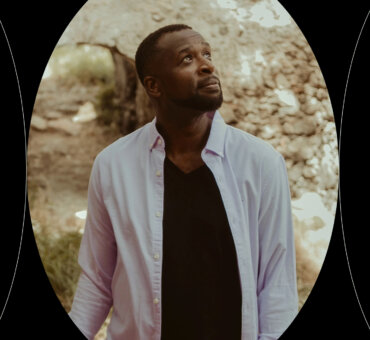It’s easy to feel helpless when it comes to the lack of diversity and inclusion in filmmaking. How do you even begin to approach that conversation, much less start thinking about how to solve it? According to a 2018 report from the Directors Guild of America, only 9.7 percent of films were directed by minorities in 2018 and only 12.2 percent of films were directed by women.
Those aren’t exactly encouraging numbers.
Do you know what is encouraging? Knowing there are directors like Reinaldo Marcus Green out there. His film Monsters and Men helped jumpstart conversations along racial lines in an authentic and responsible way (and also won the Grand Jury Prize at Sundance). But, more than that, he’s advocating for a revival in representation, in front of the camera and behind it.
So, we thought he’d be the right person to ask about what it means to be a responsible, conscious filmmaker these days, to share some insights on what he’s seeing in the film industry when it comes to inclusion. Unsurprisingly, it turns out Reinaldo also had some advice on what you can be doing as a filmmaker to make the industry a little bit brighter right now. Here’s Reinaldo:
Move beyond diversity.
Don’t get me wrong, I think my phone is ringing because there’s a demand for new voices. Otherwise, folks like me wouldn’t be working. I think it’s a great thing that there are more stories being told and more diverse stories being told. But, I think we need to move beyond the word ‘diversity’. It’s something that’s become a little bit of a handicap. It becomes more about diversity than about true inclusiveness, about checking boxes rather than making the best art or the best film or the best show.
The best films are always inclusive of diverse voices and it shouldn’t be limited to just, “Okay, we have these many people in this many crew positions.” It’s not a formula. And yes, sometimes you need to put formulas in place to start making the difference. You have to start somewhere and you have to hold people accountable. But, who is going to be the gatekeeper? Who’s making sure that voices are being represented above the line and below the line? It can’t just be a lone “diversity officer.” We need to have true leadership, people who are truly invested in making a difference.
Where are you finding your people?
I’m half Puerto Rican and half black, so when I go into a room I know when no one looks like me. It’s something that I’m hyper-aware of, so I think diversity and inclusion are ingrained into who I am naturally. But, it’s not just me. If you ask anybody if diversity is important, 99 percent of people are going to say, “Yes. Absolutely yes. We’re doing everything we can.”
But, “everything you can” means you’re reaching out to all the agencies. And that’s even on me. I’ve reached out to “The Agencies” and they always come back with their “lists”. So, if the lists come back and 99 percent of those people are white males, what do you do? You have to go back to the agency and ask, “Why don’t you guys represent anyone outside of the pool?”
It’s up to those folks to make sure they’re doing their jobs because that’s where you usually get your talent. Those pools are just not as inclusive as they need to be. It’s a reality in the agency world. More work needs to be done in bringing in more diverse talent.
Don’t accept the status quo.
So, what can you do as a filmmaker? Don’t take “no” for an answer. If I’m a conscious filmmaker and I know that I need more women and more people of color on my crew, I have to make sure that the people on my crew feel the same way. They’re not just doing it for me — they truly feel the same way. Ultimately, you’re setting the tone from the top by who you hire as department heads. You’re saying, “I’m going to get some new voices in here.”
It’s always the best person for the job, right? I want the best person for the job, but we need to be pulling from a bigger pool. If there is not one candidate who is a person of color or a woman, we’re not doing a good enough job.
There are thousands of people who are looking for jobs and work. There are people who are willing to work hard and have the qualifications. I think you, as a creator, have the ability to hire folks who are paying attention. That’s within your realm. Again, it’s about the best person for the job. If it comes out that the white dude is the best person, he should get the job. 100 percent. But, if it comes out that we’re only looking at 10 white dudes. We got a problem.
It’s all about perspective.
In the end, all of this makes for a better product. For instance, if I’m writing a female character, I’m always engaging my female friends, female producers, and people that can say, “Oh, that’s not how we do it. That’s a two-dimensional woman you just wrote, Rei. They need to be three-dimensional.” It’s important to have diverse voices because it makes you better at what you do. That goes for every single crew position.
It’s not about the color of your skin or your gender; it’s about your perspective. It’s about offering a viewpoint of the world that makes our product better. They see the world in a way that I haven’t seen it before.
We connect with things that are specific and universal. Take one of my favorite movies, Tokyo Story, for example. It’s made in Japan, so why is this kid from Brooklyn connecting with it so much? Because it’s about humanity. It’s about love. Those are the common denominators we’re trying to find and we can only do so by searching outside of our own perspective.
It’s not about the color of your skin or your gender; it’s about your perspective. It’s about offering a viewpoint of the world that makes our product better.
Don’t let up.
Yes, things are improving. But, we’re talking about an institutional mindset that needs to change. How do you change that climate, that culture? It’s got to be about more than, “Hey, we’re watching The Oscars and there are 51% whatever.” The true test is going to be how these things change over time. I think change is happening but is it happening fast enough? No.
We have to remain consistent. We have to remain persistent. We let a little bit of change fool us into thinking we’ve already made it. It’s a battle. It’s a constant conversation. We have to hold ourselves accountable. That goes for me and folks like me because it’s not enough to say, “Hey, I made it. I’m black and Latino and I got in the door.” It’s a start, but you need folks to get in the door and hold it open. That’s where we need to get as an industry.































































